- Phone: +91 8466016171
- Whatsapp: +91 8208375580
- Email: contact@leapscholar.com

PhD In Biotechnology Abroad With Scholarship: The Ultimate Guide
- Updated On December 19, 2022
- Published In Courses 📖
PhD in Biotechnology is a very popular and emerging course, especially after the COVID pandemic. This course includes modules such as biochemistry, microbiology, molecular biology, bioinformatics, genomics, and more. The demand for this course will only go upwards because the demand for skilled researchers in developed countries has shot up rapidly. Therefore, this course can be a lucrative career option for students looking to settle abroad.
Table of Contents
This article will discuss the process of how you can initiate the process of getting a PhD In Biotechnology Abroad With Scholarship, eligibility criteria and more.

Overview of PhD in Biotechnology
PhD in Biotechnology is a course designed to introduce the students to cutting-edge bioengineering techniques that can alter the genes to produce something that can have replicable and practical uses on a large scale. It uses a genetic modification, one of the most common techniques to create or modify the physical properties of products in contention.
Biotechnology is often the melting pot where multiple fields merge to work towards the common goal of making human lives better. It tries to find modern solutions to new-age problems, such as bioterrorism, the spread of pathogens, public health, and other public science and medical sciences-related troubles.
There are several well-reputed universities that allow international students to apply for PhD in Biotechnology. But given the intricacies of the course, the cost is often the factor that prevents the applicants from applying for a fellowship in their desired universities across the UK, Australia, New Zealand, Canada, and other places considered the hub of doctorate and post-graduate courses.
The Indian government and several non-government organizations offer scholarships to provide financial support to potential candidates looking to study abroad and make it easier for them to access reputed labs globally.
Also Read: PhD Scholarships For Indian Students
Also Read: PhD in USA: Scholarships For Indian Students
List of PhD In Biotechnology Abroad With Scholarship
Below is the top PhD Biotechnology Scholarships with the amount you can apply for as an Indian Student to Study Abroad:
The best guidance for your STUDY ABROAD DREAM
Start your journey with the best study abroad experts in India

Eligibility Criteria
For all those planning to pursue PhD in Biotechnology abroad with a scholarship, you will have to ensure that you meet the eligibility criteria for the programme. Here are the requirements:
- A recognized bachelor’s degree like BTech Biotechnology, BSc Biotechnology, or in any other relevant field
- A recognized master’s degree in biotechnology or bioinformatics, such as MPhil, or MSc Biotechnology, from any recognized university in India or abroad
- Minimum prescribed score in GRE (varies from one university to another)
- Minimum prescribed score in IELTS, TOEFL, or any other prescribed English proficiency test
- SoP (Statement of Purpose) and LoR (Letter of Recommendation) as prescribed
Admission Process for PhD Biotechnology
Here is how you can expect your admission process for PhD in Biotechnology to pan out:
1. Application
You will have to fill out and submit an application form to the requisite university if you want to pursue your doctorate programme in. Various colleges offer admission forms during different times of the year, such as in June, September, or December. So you will have to understand the timing accordingly and download and upload the form within the allotted timeline.
2. Entrance exam
Given that a doctorate holds a lot of importance, most universities you apply to are likely to take an entrance test before accepting the applicant. If you are above the cut-off marks decided by the college, the entrance test would be the basis for you reaching the next step.
3. Group discussion & personal interview
In most universities, the entrance exam is followed by a GD and PI round to assess the personality and other aspects of the selected candidates. Your overall attitude towards the course would decide your fate in this round.
4. Admission
The final stage of the process is admission. Once you complete your GD and PI successfully, you will be required to submit all the requisite documents and pay the admission fee to get yourself enrolled in the programme.
Subjects Covered in PhD Biotechnology
Since it is such a specialized degree, you must already have an idea of which topic you would like to work on. In case you are looking for some options, we have a list of the most popular topics on that one can pursue a doctorate. Most of these subjects revolve around scientific disciplines, specifically biology and engineering. You can also go for an interdisciplinary approach by working on the intersection of these topics.
Here is the list of most common subjects offered to the applicants for PhD in Biotechnology –
- Bioinformatics
- Molecular Biology
- Bioinformatics and Statistics
- Protein Biotechnology
- Bioprocessing Technique
- Electrophoresis and DNA Sequencing
- Environmental Microbiology
Top Universities for PhD Biotechnology
PhD in Biotechnology is a doctoral studies course offered by a plethora of the most reputed universities on the planet. Given the importance of the course, you should be careful in choosing the right option for yourself, provided you have the marks.
Here are the top global universities offering PhD in Biotechnology:
- Harvard University – USA
- Lancaster University – UK
- University of Cambridge – UK
- University of Technology, Sydney – Australia
- University of Alberta – Canada
- University of France – France
- Heidelberg University – Germany
PhD in Biotechnology in the UK
The United Kingdom is one of the leaders in biotechnology programmes. It houses a plethora of top-ranked universities known for excellence in research in the social sciences and other similar sectors. Here are some of the leading options for those looking to pursue a PhD in Biotechnology in the UK –
- University of Manchester
- University of Bristol
- University of Leeds
- University of East London
- University of Greenwich
PhD in Biotechnology in the US
The United States of America is known to be the technology hub and offers an excellent research base for biotechnology applicants. You get outstanding exposure, and the US is the top spenders for research and development in biotechnology. Here are some of the leading options for people from India or other places looking to study biotechnology in the USA –
- University of California – Berkeley
- Texas A and M University-College Station
- Massachusetts Institute of Technology
- Clarkson University
- The University of Alabama in Huntsville
PhD in Biotechnology in Australia
Australia has four universities in the list of top 50 for Life Sciences globally. In addition, the country supports growth in the biotechnology industry. Most of its universities offer PhD for reasonable tuition fees, making it easier for international students. Here are the best options for pursuing doctoral studies in Australia –
- University of Queensland
- University of Sydney
- University of Melbourne
- Monash University
PhD in Biotechnology in Canada
Canada is one of the fastest-growing economies when it comes to education. It also offers excellent options for doctorate programmes, and the tuition fees of most of its universities are on the reasonable side. Here are the options for Indian students looking to study biotechnology in Canada –
- University of Waterloo
- University of Lethbridge
- Carleton University
- Centennial College
- Fanshawe College

While a PhD in Biotechnology is a popular programme throughout the globe, we all have specific choices regarding where we want to go for our higher studies. But given the intricacies involved, we often find it difficult to ascertain the right universities to apply to.
If you are feeling overwhelmed too, it is time you let an expert handle it on your behalf. Leap Scholar offers comprehensive feedback regarding your application and helps you understand the entire process.
Click here to contact our expert mentors and embark on your doctorate journey with high affinity and improved visibility today.
Related Articles
- Masters Biotechnology in Canada: Universities & Courses Details
- MSc Biotechnology In UK: Universities, Course Details
- MS Biotechnology in USA: Universities & Course Details
Frequently Asked Questions
Which country is the best for pursuing a phd in biotechnology.
While parts of Asia and Europe excel at providing top-quality research options for students looking to pursue PhD in Biotechnology, the USA, the UK, Australia, and Canada are the top countries that offer the best facilities in this field and other higher education-based courses.
What is the monthly stipend for applicants pursuing a PhD in Biotechnology?
Most universities provide a monthly stipend to their PhD applicants. The amount varies based on the exam you have cleared and the country you are in.
Are there any visa issues for those looking to apply for PhD in Biotechnology abroad with a scholarship?
No. There are no visa-related issues for students looking to apply for PhD in Biotechnology in foreign
Kanika Singh
Kanika took a detour from academics for the corporate world. Now she works as a senior editor specialising in content creation, marketing, and strategy.
Related Posts

USA vs Australia: Which is Better for Indian Students?

MBA Colleges in Singapore for Indian Students
1 year masters programs in usa for indian students in 2024, trending now.

10+ Best Countries to Study Biotechnology Abroad in 2024

- Post author By Khuvaish
- November 1, 2023
Recently, biotechnology has been at the forefront of scientific innovation and discovery. With breakthroughs in genetic engineering, advancements in healthcare, and revolutions in agriculture, the demand for skilled professionals in biotechnology is soaring.
If you’re considering pursuing a degree in this dynamic field, choosing the right country for your studies is of paramount importance. This article explores the best countries to study biotechnology, considering factors like educational quality, research opportunities, and future career prospects.
But Hold On! Before discussing the countries that offer biotechnology courses to students. Let’s discuss the highlights of the biotechnology course.
Table of Contents
Highlights of the Biotechnology Course
Biotechnology is a dynamic field encompassing genetic engineering, molecular biology, pharmaceuticals, and more. This discipline continues to shape the future of students. So, choosing the right destination for biotech studies becomes essential for students.
But before discussing the best countries to study biotechnology abroad. Let’s explore the common subjects you can expect to study in biotechnology courses:
- Pharmacology
- Biochemistry and molecular biology
- Proteins and enzymes
- Cell Biology
- Microbiology
Moving further, let’s discuss the best countries to study biotechnology abroad and the career opportunities an international student gets after completing biotech studies in foreign countries.
5 Best Countries to Study Biotechnology Abroad
The various best countries to study Biotechnology Abroad for international students are as follows:
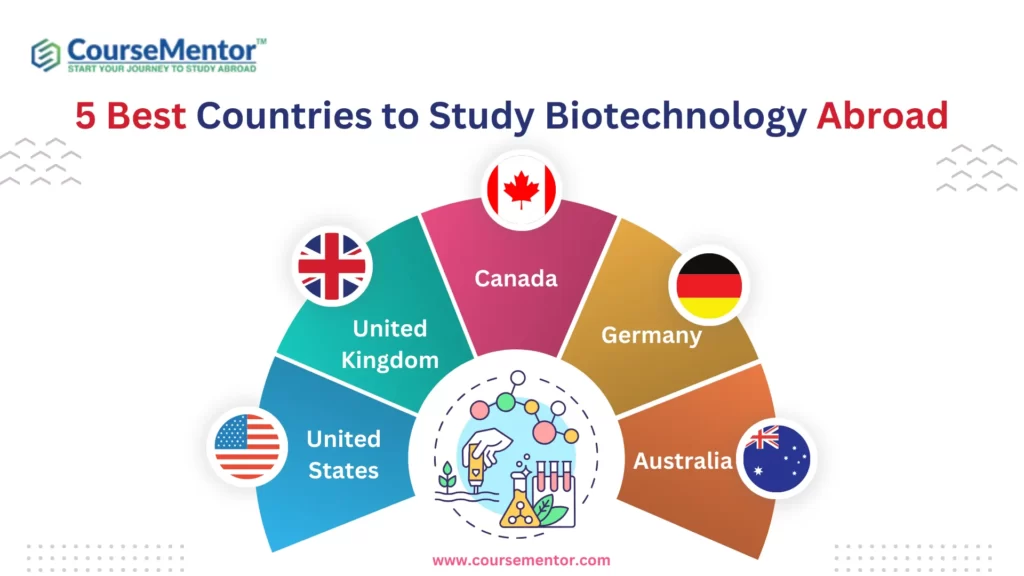
1. United States – A Hub for Biotechnology
The United States boasts some of the world’s most prestigious universities and research institutions. Moreover, the country is home to numerous biotech companies. It also provides ample opportunities for internships and collaboration.
That’s why the US is considered one of the best countries to study Biotechnology abroad. The various universities offering cutting-edge programs are as follows:
Related Article: 10+ Best Courses to Study in USA for International Students
2. United Kingdom – A Tradition of Excellence
The UK is also one of the best countries to study biotechnology abroad as it offers a rich tradition of scientific innovation. Universities such as Oxford and Cambridge offer top-tier biotechnology programs. The UK’s scientific community and well-established biotech firms make it an attractive choice for international students. The various universities offering biotech programs are as follows:
3. Canada – Quality Education and Diverse Culture
Canada is known for its high-quality education and multicultural society. Institutions like the University of Toronto and the University of British Columbia have strong biotech programs. Additionally, Canada’s liberal immigration policies make it an appealing choice for international students. That’s why it is considered one of the best countries to study biotechnology abroad.
4. Germany – Engineering and Innovation
Germany is renowned for its engineering and innovation. Its universities offer excellent biotechnology programs. The country’s strong ties to the pharmaceutical industry provide students with practical experience. That’s why Germany is also considered one of the best countries to study biotechnology abroad.
Also Read: 10 Common Reasons for Germany Student Visa Rejection
5. Australia – A Unique Biotech Perspective
Australia combines top-notch universities with a unique perspective on biotechnology. It is also considered one of the best countries to study biotechnology abroad. Australian universities emphasize research and development, making it an ideal destination for students interested in the practical aspects of biotechnology.
Various Other Countries to Study Biotechnology Abroad
Besides the above-mentioned 5 best countries to study Biotechnology in foreign countries. The various other countries that are open for international students to pursue biotechnology are as follows:
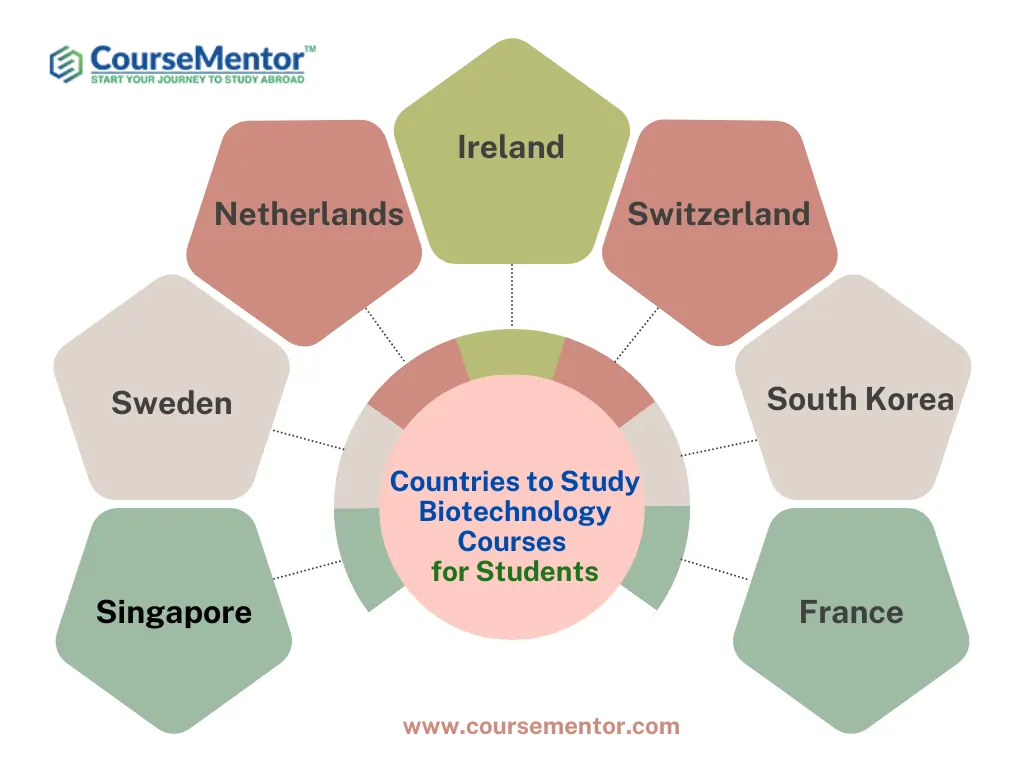
1. Singapore – Biotech Hub of Asia
Singapore has rapidly emerged as a biotech hub in Asia. Its universities have state-of-the-art facilities and laboratories, including the Biopolis and Fusionopolis research hubs.
For international students, Nanyang Technological University (NTU) and the National University of Singapore (NUS) are among the top choices. Because it has well-established faculties and a track record of producing successful biotech professionals.
2. Sweden – Pioneering Research in Biotechnology
Sweden is known for its commitment to innovation and sustainability. Swedish universities excel in research, making them ideal for students interested in cutting-edge biotechnology advancements.
3. Netherlands – A Strong Foundation in Life Sciences
The Netherlands offers a strong foundation in life sciences. Universities like Wageningen University and Utrecht University have reputable biotechnology programs. These universities offer a blend of theoretical knowledge and practical experience. Ensuring that students are well-prepared for careers in biotechnology.
4. Ireland – A Growing Biotech Ecosystem
Ireland has several prestigious universities and institutions that provide world-class biotech programs. Universities such as University College Dublin (UCD), Trinity College Dublin , and the National University of Ireland Galway offer various biotechnology courses. These programs are designed to equip students with the knowledge, skills, and hands-on experience needed to excel in the biotech industry.
5. Switzerland – Precision and Innovation
Switzerland is known for its precision and innovation, making it an attractive destination for biotech students. Swiss universities are well-regarded, and the country’s connections to the pharmaceutical industry offer promising career opportunities.
6. South Korea – Technology and Tradition
South Korea combines its rich cultural heritage with cutting-edge technology. Its universities, such as Seoul National University, provide quality biotech education, and the country is a hotspot for biotech research in Asia.
7. France – A Rich Scientific Heritage
France has a rich scientific heritage and offers diverse biotechnology programs. With world-renowned institutions like Sorbonne University, studying biotechnology in France combines academic excellence with a vibrant cultural experience.
All these countries offer international students the opportunity to study biotechnology courses. Moving further, after studying biotechnology courses in foreign countries. International students get a lot of career opportunities, so let’s discuss it.
Career Opportunities after Studying Biotechnology Abroad
Some Career Opportunities the students can consider after completing their studies in the biotechnology field are as follows:
- Epidemiologist
- Biomedical Engineer
- Microbiologist
- Soil and Plant Scientist
- Research Scientist
- Animal Scientist
- Biochemist or Biophysicist
- Medical lab technician
- Agricultural Engineer
Final Words
In this article, we have discussed the best countries to study biotechnology that will help you make an informed decision while considering where to study biotechnology. Well, before making the decision, consider factors like educational quality, research opportunities, and future career prospects.
The countries mentioned in this article offer a range of advantages for international students, ensuring a rich and fulfilling academic experience. Moreover, each destination has its unique charm and opportunities, allowing you to tailor your biotech education to your specific interests and career goals.
In the end, we have also discussed the career opportunities that a student gets after completing the biotechnology courses in foreign countries. Do consider revisiting if you would like to know more about studying abroad opportunities.
Frequently Asked Questions (FAQs)
What is the best place to study biotechnology.
The best place to study biotechnology depends on your specific interests and goals. The top institutions for biotechnology programs include MIT, Harvard University, and the University of California, Berkeley.
Which Countries have the highest number of jobs in biotechnology?
The United States, Canada, China, Denmark, the UK, etc, have some of the highest jobs in the biotechnology sector.
What are the career opportunities after Studying Biotechnology Abroad?
Career opportunities after studying biotechnology abroad include roles in research, pharmaceuticals, healthcare, agriculture, and biotech companies.
- Tags Best Countries to Study Biotechnology
- australia (2)
- duolingo (13)
- Education (266)
- General (70)
- How To (16)
- IELTS (127)
- Latest Updates (162)
- Malta Visa (6)
- Permanent residency (1)
- Programming (31)
- Scholarship (1)
- Sponsored (4)
- Study Abroad (187)
- Technology (12)
- work permit (8)
Recent Posts


- Doing a PhD in Biotechnology
The general aim of a PhD in Biotechnology is to train top-level researchers in various areas of Biotechnology with a solid theoretical and methodological background, with a balance between basic and applied research that will enable them to tackle innovation problems in a multidisciplinary manner, with special emphasis on the bases and applications of biotechnology, so that graduates can work in industrial sectors, biotechnology companies, service companies, in the area of health, in public or private research centres, or as academics in universities.
What does a PhD in Biotech Involve?
The aim of a university PhD programme in Biotechnology is to prepare you to start and complete theoretical, methodological and research training in the multidisciplinary field of biotechnology, which takes the form of the preparation and defence of an innovative doctoral thesis.
Examples of topics you could investigate as part of your PhD research project include:
- Biomedicine: a field of study that focuses on understanding the cellular and molecular biology processes and their applications. It focuses on finding cures for diseases such as Alzheimer’s, cancer, etc.
- Plant biotechnology : area of study oriented towards fundamental and applied research in plant physiology and cell biology, functional genomics and plant-pathogen interaction.
- Bioinformatics: related to programming and data analysis in health issues and nanotechnology and computational modelling of biological systems. Research in nanoparticle biogenesis, microscopy, bioprocess engineering, systems biology and molecular modelling.
- Aquaculture biotechnology: a combination of science and practical skill in fish farming. The primary objective is to generate knowledge that can increase the productivity of aquaculture.
- Microbial biotechnology: focuses on both fundamental and applied research into the functioning of biological systems such as bacteria, viruses and yeasts for the generation of value-added products such as nanoparticles, proteins, biopolymers and probiotics.
A doctorate training programme in biotechnology aims to train PhD students to:
- Independently, with capacities, knowledge and skills to identify opportunities, develop and direct relevant research projects to develop biotechnological.
- Recognised for their ability to create knowledge and provide technological solutions in biotechnology for research centres, productive, educational and social sectors.
- Capable of linking up with the private sector so that the research is translated into improved technologies, processes and products that drive a country’s development.
- Ability to create, disseminate and ethically impart knowledge with a strong sense of responsibility and social duty.
Browse PhDs in Biotechnology
A next-generation genetic technology to identify biotechnologically-valuable enzymes and transporters, ubiquitin-dependent signalling pathways in ageing, exploring the impact of microplastic-bacterial complexes on animal health and the gut microbiome, energy dissipation in human soft tissue during impacts, micro-manufacturing of surface textures for enhanced electrosurgery, how long does it take to get a phd in biotechnology.
A Biotechnology PhD in the UK commonly takes between three and four years to complete if studying full-time, including a year for writing up your thesis , and between five and seven years if studying part-time or as distance learning.
What are the typical application requirements for a Biotech PhD?
The entry profile of a PhD candidate for a Biotechnology degree is a prospective student with an undergraduate degree, typically a 2:1 Master’s degree, in a field related to Biotechnology, Microbiology, Biochemistry, Food Science and Technology, Veterinary Medicine, Chemistry and Engineering. A background in biology is particularly favourable.
In addition to this, candidates will be expected to have:
- Excellent academic background and have a vocation for a graduate research area in one of the fields of knowledge promoted by the doctoral programme.
- Good written and oral communication skills in English.
- If you’re an international student, you must meet the university’s minimum English language requirement. This will typically be through an IELTS (Academic) or TOEFL examination.
How much does a PhD in Biotechnology cost?
Annual fees will depend on whether you’re a home or international student and the specific university you study within. However, annual tuition fees typically range between £4,407 – £15,607 for full-time study, and £2,203 – £7,803 for part-time study.
Career in Biotechnology for PhD Holders

Not everyone knows there are many career options available with an advanced degree in biotechnology , especially at a doctorate level. As such, biotechnology graduates do not strictly need to pursue a career as a scientist at a medical company.
Those who possess a higher education doctorate in biotechnology will be capable of working in the academic, scientific and industrial fields, both in the application and generation of knowledge. Research degree holders will have excellent communication skills and the capacity for critical analysis and scientific reasoning, which allows them to formulate complex problems and propose innovative solutions to them, leading groups of applied research in laboratories of public and/or private institutions.
Because of this, biotech PhD postgraduates can take up an opportunity from a range of industries, including:
- Quality Assurance and Control
- Manufacturing industry
- Clinical research
- Government policymaking
- Research & Development
- Software engineering
- Chemistry, biological science, and agriculture
- Business and Project management
- Biomedical science and Engineering
As well as undertaking a range of positions, biotech PhD holders can also work in a range of environments such as for government agencies, private companies, regulatory bodies, or clinical laboratories. People in biotech jobs range from small start-ups to big pharma companies to national departments such as UKRI.
Browse PhDs Now
Join thousands of students.
Join thousands of other students and stay up to date with the latest PhD programmes, funding opportunities and advice.

25,000+ students realised their study abroad dream with us. Take the first step today
Meet top uk universities from the comfort of your home, here’s your new year gift, one app for all your, study abroad needs, start your journey, track your progress, grow with the community and so much more.

Verification Code
An OTP has been sent to your registered mobile no. Please verify

Thanks for your comment !
Our team will review it before it's shown to our readers.

- Study in Germany /
PhD in Biotechnology in Germany: A Guide
- Updated on
- Aug 10, 2023

One of the most well-liked places to study abroad is Germany , where 3,600 international graduates complete their doctorates annually. Germany has a great reputation for offering excellent higher education, in-depth research, and a range of programmes. Students from across the world are flocking to this beautiful country to take advantage of the fantastic student life there and finish their degrees at their preferred universities.
Germany is one such place that offers various kinds of great courses in Biotechnology like Ph.D. in Biotechnology. The manipulation, change, and replication of genes are done in biotechnology, a branch of modern science, to generate affordable products for the betterment of society. It is a steadily growing global industry with a variety of exciting job prospects. Increasing numbers of applicants are now entering into creating a career in biotechnology and attempting their hands at core research in the expanding sector.
This blog will assist in explaining the procedure if you’re interested in obtaining a PhD in Biotechnology in Germany.
This Blog Includes:
Why choose biotechnology in germany, list of phd in biotechnology colleges in germany, eligibility for phd in biotechnology in germany, fees & funding for phd in biotechnology in germany, scholarships for phd in biotechnology in germany, career scope phd in biotechnology in germany, job after biotechnology studies in germany.
A broader branch of biology known as biotechnology uses technology to produce goods made from living things. Studying in Germany is advantageous since the biotech clusters that were built there have become important centres for research and development.
- The QS Global Rankings 2022 list includes more than 22 biotechnology colleges from Germany among the top 200 institutions worldwide
- More than 500 biotech businesses are located in Germany, with 75% of them having a commercial connection to the pharmaceutical sector
- In Germany, public universities predominately make up the elite institutions. Consequently, there are no course costs for international students to pay
- German biotechnologists make an average monthly salary of roughly 12,600 euros. Examine the employment options in Germany!
- Biotech companies driven by artificial intelligence are dominating the industry and anticipate significant growth between 2020 and 2024
- Germany Trade & Invest estimates that in 2020, the 660 biotech businesses in Germany made a record 4.9 billion Euros in revenue and spent about 1.8 billion on R&D
Also Read: Top Universities and Colleges in Berlin | Leverage Edu
In Germany, a PhD programme typically lasts three to four years with a maximum extension of six years, as is the case in several colleges. The majority of PhD programmes in Germany are offered by state universities, which don’t charge students any tuition. In Germany, biotechnology colleges offer the following popular PhD programmes:
Also Read: All About The University of Cologne
Although each university may have its own unique requirements, the following are the general prerequisites for admission:
Academic requirements: Candidates must have earned a master’s degree in biotechnology, bioinformatics, or a related field from an accredited university with a minimum cumulative GPA of 90%.
Language requirements: Students must pass the TOEFL or IELTS to demonstrate their ability in English. There is no required minimum score, though. The DSH-2 test, which measures German language competency, must be passed by applicants.
Documents: When applying for admission, the following documentation is necessary:
- All transcripts of grades
- Updated resume
- Motivation statement
- Evidence of German language exams
Also Read: Ludwig Maximilian University of Munich: Ranking, Fees, Eligibility …
There are no tuition costs for students applying to PhD programmes at public universities. However, there are extra costs associated with living in Germany and supporting research initiatives. Despite the opportunities for free study, students still need to cover extra costs, for which they might search for fellowships and PhD scholarships in Germany.
Even though the majority of German universities do not charge tuition for undergraduate or PhD programmes, a student still needs to cover other costs. In addition to living expenses, this also includes health insurance, semester admissions, and donations to student organisations. The following are a few of the well-known scholarship programmes for studying in Germany:
Also Read: Biotechnology Courses: Scope, Fees, Colleges | Leverage Edu
Germany’s biotech industry is expanding steadily, and there are currently around 27,544 people employed in this field.
- This industry has seen significant changes since 2014, including a rapid expansion of its market radius. The rationale is that, throughout time, a lot of startups have emerged, collectively increasing the biotech sector’s overall output.
- In Germany, a professional employed in the biotechnology sector may expect to make between 9,500 and 16,500 euros per month.
- Despite more than 50% of people earning 13,700 Euros each month, the payout is comparatively good.
- Qiagen N.V., Rentschler Biotechnologie, and Miltenyi Biotec GmbH are the three largest employers in the German biotech sector.
- Medical or industrial biotechnology is the foundation for employment in the German biotech sector.
Also Read: Computational Biology: Courses, Universities & Scope
Given below are some jobs along with the annual salary of the job profiles after pursuing Biotechnology courses in Germany:
A. Students can expect a significant return on investment from biotechnology in Germany. The average income for graduates of this programme is from EUR 52,500 – EUR 66,100 per year.
A. In Germany, the average salary for a biotechnologist is €80,702 per year and €39 per hour. Biotechnologists’ salaries typically vary from €56,088 to €98,295.
A. The majority of German institutions have zero charges on tuition for PhD programmes, and financing is available from numerous government agencies, research groups, and other organisations.
Hope this blog gave you all the necessary information regarding PhD in Biotechnology in Germany. For more such information visit us at Leverage Edu.
Shreya Nigam
Shreya Nigam is a talented and passionate content writer with a keen eye for detail and a love for storytelling. She has years of expertise and produces top-notch, customised material that enthrals readers in a variety of areas, including education, technology, etc. Shreya makes sure her work is correct and current with industry trends because she is a committed researcher. She aggressively seeks criticism and welcomes difficulties in order to develop her originality and competence throughout time. Shreya Nigam is a dependable and trusted partner for any content writing needs thanks to her great writing skills and dedication to quality.
Leave a Reply Cancel reply
Save my name, email, and website in this browser for the next time I comment.
Contact no. *
My daughter has completed M.Sc. Medical Biotechnology through GATEB from Bhartiar University, Coimbatore with highest score and third ranked from the University and trying to pursue her Ph. D. Programme in Medical Biotechnology from Beloved Germany. Financially I am not in a position to send her , she is a brilliant student but due to poor financial condition she could not go aboard. If there is any opportunity she can shine and can do for the Germany as well as for the whole world.
Hey Sanjib. Scholarships is one way to study in Germany. Some of the popular scholarships available for biotechnology students include: Konrad-Adenauer-Stiftung Scholarship, Kaad Scholarship, JN Tata Endowment Scholarship, and MAWISTA Scholarship. You daughter must meet the eligibilty requirements of the scholarship to apply. Moreover, the documents (ex. the academic transcripts, IELTS Score, etc) must be submitted before the deadline. Do note that the deadline for each of these scholarships vary. To learn more about studying in Germany consult the study abroad experts at Leverage Edu.

Connect With Us
25,000+ students realised their study abroad dream with us. take the first step today..

Resend OTP in

Need help with?
Study abroad.
UK, Canada, US & More
IELTS, GRE, GMAT & More
Scholarship, Loans & Forex
Country Preference
New Zealand
Which English test are you planning to take?
Which academic test are you planning to take.
Not Sure yet
When are you planning to take the exam?
Already booked my exam slot
Within 2 Months
Want to learn about the test
Which Degree do you wish to pursue?
When do you want to start studying abroad.
January 2024
September 2024
What is your budget to study abroad?

How would you describe this article ?
Please rate this article
We would like to hear more.
Have something on your mind?

Make your study abroad dream a reality in January 2022 with
India's Biggest Virtual University Fair

Essex Direct Admission Day
Why attend .

Don't Miss Out

Alternatively, use our A–Z index

Attend an open day
PhD/MPhil Biotechnology / Overview
Year of entry: 2024
- View full page
We require applicants to hold, or be about to obtain, an Upper Second class Honours degree, or the equivalent qualification gained outside the UK, in a related subject area for entry to a PhD programme. A Lower Second class Honours degree may be considered if applicants also hold a Master's degree with a Merit classification.
Full entry requirements
See full guidance on how to choose a project and submit an application on our websi te . You should then complete the online admissions application form to apply for this programme. Ensure you include all required supporting documents at the time of submission, or this may delay the processing of your application.
Application deadlines
You must submit your application for a postgraduate research programme before the relevant deadline to be considered. You will not be able to apply after these deadlines have passed.
- January entry: 15 October (of the year prior entry)
- April entry: 15 January (year of entry)
- September entry: 15 June (year of entry)
Programme options
Programme overview.
- Learn from some of Europe's leading researchers while undertaking your own project.
- Access some of the best research facilities in the world at both the University and in hospitals around Greater Manchester.
- Undergo training in transferable skills critical to developing early-stage researchers and professionals through the Doctoral Academy's training programme.
- Conduct research at a university ranked 6th in the UK (QS World University Rankings 2023).
For entry in the academic year beginning September 2024, the tuition fees are as follows:
- PhD (full-time) UK students (per annum): Standard £4,786, Low £11,000, Medium £17,500, High £23,000 International, including EU, students (per annum): Standard £27,000, Low £28,500, Medium £34,500, High £40,500
Further information for EU students can be found on our dedicated EU page.
Contact details
Programmes in related subject areas.
Use the links below to view lists of programmes in related subject areas.
- Biosciences
Regulated by the Office for Students
The University of Manchester is regulated by the Office for Students (OfS). The OfS aims to help students succeed in Higher Education by ensuring they receive excellent information and guidance, get high quality education that prepares them for the future and by protecting their interests. More information can be found at the OfS website .
You can find regulations and policies relating to student life at The University of Manchester, including our Degree Regulations and Complaints Procedure, on our regulations website .
- Top Colleges
- Top Courses
- Entrance Exams
- Admission 2024
- Study Abroad
- Study in Canada
- Study in UK
- Study in USA
- Study in Australia
- Study in Germany
- IELTS Material
- Scholarships
- Sarkari Exam
- Visual Stories
- Write a review
- Login/ Register
- Login / Register
PhD Biotechnology: Course Details, Eligibility, Admission, Fees

Updated on - Jan 4, 2023
PhD in Biotechnology is a three to five-year Doctorate program that deals with detailed study and research in the field of Biotechnology. PhD in Biotechnology helps candidates learn cutting-edge bioengineering techniques that help in altering genes to produce valuable goods. Some of the jobs for Graduates include becoming a Biochemist, Microbiologist, Medical Scientist, Biomedical Engineer, Product Strategies, etc.
PhD Biotechnology Course Details
About phd biotechnology.
PhD Biotechnology is a Doctorate course that is curated into 3-5 years (depending on the length of research). This course majorly consists of learning about research methodology, scientific procedures, latest trends in biotechnology and bioinformatics to complete their research and thesis. PhD Biotechnology falls under the umbrella of a PhD. According to Wikipedia, “Biotechnology is the integration of natural sciences and engineering sciences to achieve the application of organisms, cells, parts thereof and molecular analogues for products and services.”
Table of Contents
- PhD Biotechnology Eligibility Criteria
- PhD Biotechnology Admission Process
- Popular PhD Biotechnology Entrance Exams
- Top PhD Biotechnology Colleges in India
- Fees Structure for PhD Biotechnology
Syllabus and Subjects for PhD Biotechnology
Why choose phd biotechnology, preparation tips for phd biotechnology.
- PhD Biotechnology Salary
Career Options After PhD Biotechnology
- Skills to Excel
Eligibility Criteria for PhD Biotechnology
PhD Biotechnology admission is offered to only those students who meet the eligibility requirements. The candidates must have a Masters's Degree in Biotechnology/Bioinformatics with a minimum 50% aggregate score in the final examination. Age is no bar for the aspirants pursuing PhD courses in India. The admission process is based on an entrance examination followed by an interview.
How To Get Admission in PhD Biotechnology?
Students must ensure that they satisfy the eligibility criteria for PhD Biotechnology in India. Biotechnology PhD admission is done through entrance exam scores which are followed by an interview. Admission procedures may vary across different PhD Biotechnology universities in India. Following are some general necessities for getting admission:
How to Apply?
PhD Biotechnology course details and procedures for admission can be found on the university's official websites. To apply for the course, visit the official university admission portal and fill out the application form by providing the required details. After that, register for the entrance exam there itself.
Selection Process
Admission is strictly offered to only those students who clear the PhD in Biotechnology eligibility criteria. Generally, the list of selected candidates is made available on the designated website but sometimes, the authorities may intimate selected students about the further admission process via email. Popular Entrance Exams for PhD Biotechnology
Who Should Pursue a PhD Biotechnology?
PhD Biotechnology is a course designed for students who want to research the development of biotechnology. The course is purely research based on the advancement of new biotechnology.
When to do a PhD Biotechnology?
PhD Biotechnology is pursued right after completion of a Masters's in Biotechnology.
Types of PhD Biotechnology
Aspirants can pursue the PhD Biotechnology course in a full-time, part-time, or distance course.
Full-Time PhD Biotechnology
A full-time PhD Biotechnology is a typical programme. During this time, students must attend classes, submit assignments, and take exams on campus. When enrolled in a full-time PhD Biotechnology course, students gain more exposure, experience, and knowledge by interacting directly with colleagues and faculty.
Part-Time PhD Biotechnology
Part-time degrees allow the student to complete their degree programme on their own time. The course is structured for working professionals. Colleges do offer a PhD Biotechnology as a part-time course.
Distance PhD Biotechnology
Distance Education colleges allow students to earn their degrees while working. This is frequently the most adaptable type of degree programme. A PhD Biotechnology is not offered as distance education.
PhD Biotechnology Entrance Exams
Admission to the PhD Biotechnology in India is mainly through entrance examinations. Entrance exams for PhD Biotechnology India are usually conducted at the national level and sometimes at the university level. Following are the top entrance exams for which you can apply:
- DBT Biotechnology Eligibility Test
- AIIMS PhD Entrance Exam
- BARC PhD Admission Test
- BINC Examination
- BITS PhD Entrance Examination
A Quick Glance at the PhD Biotechnology Entrance Exams
To get admitted, students must ensure that they satisfy the eligibility for the above course. Students should study well and get prepared before time to get a good score on the test. This allows students to do more revision before the main test and helps them in preparing well. The general pattern of the entrance examination is as follows:
- Generally, the entrance exam comprises two papers - I and II and they have multiple sections that test different parts of your knowledge like teaching and research aptitude, subject-specific questions etc.
- The examination will be conducted offline.
- The time duration to complete the paper is 2-3 hours.
Study PhD Biotechnology in India
India is home to some of the top colleges offering the PhD Biotechnology. Depending on their interests, candidates can choose from a variety of PhD Biotechnology courses. Candidates must select from the available options the best PhD Biotechnology programme. The following are a few of India's top colleges offering a PhD Biotechnology:
Top 10 PhD Biotechnology Colleges in India
There are various institutes that offer PhD Biotechnology. Students can opt for the best college depending upon their merit and specialization needed. Some of the PhD Biotechnology top colleges are listed below:
Top PhD Biotechnology Colleges in Delhi
Delhi has some of the best institutions for PhD Biotechnology in India. Check the table below for the top PhD Biotechnology colleges in Delhi:
Read More: PhD Biotechnology colleges in Delhi
Top PhD Biotechnology Colleges in Dehradun
Dehradun offers various colleges and institutions for PhD Biotechnology. Below is a list of various colleges offering PhD Biotechnology:
Read More: PhD BiotechnologyColleges in Dehradun
Top PhD BiotechnologyColleges in Bangalore
Bangalore is home to some of the premier institutions for PhD Biotechnology in India. Check the table below for the best PhD Biotechnology colleges in Bangalore:
Read More: PhD Biotechnology Colleges in Bangalore
Top PhD Biotechnology Colleges in Kolkata
Kolkata is renowned around the country for colleges offering top PhD Biotechnology programmes. Check the table below for the best PhD Biotechnology colleges in Kolkata:
Read More: PhD Biotechnology Colleges in Kolkata
Top PhD Biotechnology Government Colleges
There are several top Government Colleges offering quality PhD Biotechnology programmes across the country. Check the table below for the top PhD Biotechnology government colleges in India:

Top PhD Biotechnology Private Colleges
India has seen significant growth in the number of quality PhD Biotechnology private colleges that offer some of the best programmes in the country. Check the table below for the top PhD Biotechnology private colleges in India:
Study PhD Biotechnology Abroad>
Students can pursue a tax law diploma while studying abroad if they have the funds to do so. The length of the international PhD Biotechnology programme varies by course, institution, and nation. There are many benefits to studying abroad, including exposure to the subject and diverse cultures, as well as having access to some of the top faculty, facilities, and resources. Students must also have a high school diploma and be proficient in English. Below is a list of the top optometry schools in the world along with their tuition costs:
Top PhD Biotechnology colleges Abroad
The table below contains the list of some of the best colleges abroad for PhD Biotechnology:
Top PhD Biotechnology Colleges in the USA
The USA is home to some of the best universities and colleges offering top-notch PhD Biotechnology programmes in the world. The table below contains the list of top colleges for PhD Biotechnology in the USA:
Top PhD Biotechnology Colleges in the UK
The UK has institutions that date back to the 13th century. This makes the UK one of the best destinations for pursuing optometry. The table below shows the top colleges for PhD Biotechnology in the UK:
Top PhD Biotechnology Colleges in Canada
Known as the ‘Great White North, Canada is one of the most sought-after destinations for PhD Biotechnology programmes in the world. The table below shows the top universities for PhD Biotechnology in Canada:
Top PhD Biotechnology Colleges in Australia
For many students, Australia has emerged as one of the top locations for higher education. The list of top colleges for PhD Biotechnology in Australia are as follows:
Fee Structure for PhD Biotechnology
PhD Biotechnology fees range from INR 10,000 to 1.5 LPA. The fees vary according to numerous factors based on that particular college or university like the type of institute, its location, facilities provided, basic infrastructure, etc. Below listed are the PhD Biotechnology fees of some colleges:
PhD Biotechnology duration is 3-5 years. It is a doctorate degree course in Biotechnology. This course is a detailed study of research methodology, scientific procedures, and scientific communication in the desired research area.
The subjects taught in this course may be different according to the institute and research area that you might have chosen. A Graduate has to appear for two papers according to his/her syllabus. The division is as follows:
- Molecular Biology
- Bioinformatics and Biostatistics
- Statistics and Probability Theory
- Protein Biotechnology
- Electrophoresis and DNA Sequencing
Read More: PhD Biotechnology Subjects and Subjects
Students often wonder about PhD Biotechnology details before choosing the course. Before deciding on a career, students come across queries like, "What is PhD in Biotechnology?" and "Why choose PhD Biotechnology?”. To clearly understand answers to these questions, we have framed the following three pointers:
What is PhD Biotechnology All About?
PhD Biotechnology is a doctorate degree program that deals with comprehensive study and research in Biotechnology. The PhD course provides a roundup view of the details and origins of various biotechnology concepts that exist in the world. After completing the course, the Graduates are usually hired as Microbiologist, Product Manager, Biochemist, Professors, Biotechnical Researcher, Medical Coder, etc.
What Does a PhD Biotechnology Graduate Do?
The PhD Biotechnology Graduates can find jobs in areas like Colleges & Universities, Medical Research Centers, Agriculture Sector, Pharmaceutical Industry, Research Centers, etc. They can work as professors, Biotechnical Researcher, Medical Coder, Associate Research Scientists, Biochemist, Medical Scientist, Microbiologist, Biomanufacturing Specialist, Product Manager, Medical Communication Specialist, etc.
Process Development Scientists: Process Development Scientists look after the manufacturing operations in an organization’s lab so as to help that organization to increase the quality as well as efficiency of its work.
Biochemist: Biochemists study the chemical properties and characteristics of living things and biological processes, such as cell development, cell growth etc. they also work through conducting complex research projects.
Reasons Why PhD Biotechnology Can Fetch You a Rewarding Career?
Career prospects for a Graduate in PhD Biotechnology greatly vary. It depends on the respective specialization and demand. Candidates also make use of the general education provided in the degree to get a job in areas like Colleges & Universities, Medical Research Centers, the Agriculture Sector, the Pharmaceutical Industry, Research Centers, etc.
Career Scope and Options: The Graduates can work as Professors, Biotechnical Researcher, Medical Coder, Biochemist, Medical Scientist, Product Manager, Biomanufacturing Specialist, Microbiologist, etc.
Read More: PhD Biotechnology Jobs & Scope
PhD Biotechnology Course Comparison
PhD Biotechnology is typically catered to students interested in research for developing biotechnology. Below is a comparison of the PhD Biotechnology course with other courses:
PhD Biotechnology vs M.Phil Biotechnology
The table below showcases the differences between the PhD Biotechnology and B. Optometry
Some of the course preparation tips for the PhD Biotechnology course are listed below:
Syllabus And Exam Pattern : To excel in the exam, the student needs to prepare very well by studying deeply from the provided syllabus, exam pattern and the required study material.
Practice Question Papers : The person appearing for the test, should definitely go through previous years’ papers and sample papers to understand the pattern and questions better.
Take Mock Tests : He/she should look forward to doing more and more sample papers so as to increase his/her writing speed as well as accuracy.
Prepare Time Table: One should finish his/her preparation for the examination much before time so that they can practice enough to pass with flying colours.
Salary of a PhD Biotechnology Graduate
The average PhD Biotechnology salary in India (according to Payscale) is INR 3-6 LPA for freshers. Sometimes, salaries or annual earnings may vary based on the kind of practice and performance, desired sector of work, expertise and many other factors.
Read More: PhD Biotechnology Salary
After completion of the course, the graduates can find jobs in areas like Colleges & Universities, Medical Research Centers, the Agriculture Sector, the Pharmaceutical Industry, Research Centers, etc.
Some job roles offered to graduates are:
- Medical Coder
- Microbiologist
- Product Manager
Skills That Make You The Best PhD Biotechnology Graduate
There are people who are passionate about the field of science and who want to take up biotechnology and science professionally in the future. PhD Biotechnology is wide-ranging and deep in the subjects it explores and is sure to catch the fancy of all Graduates. Some required skills are:
- Biochemistry
- Bioinformatics
- Nanotechnology
- Drug Designing and Development
Get Free Scholarship worth 25000 INR

- Planet Earth
- Strange News
How To Do Phd In Biotechnology In Abroad
Table of Contents:
Best PhDs in Biotechnology in Europe 2022 . View all Doctoral Programs in Biotechnology in Europe 2022.
In all, there are over 4000 Higher Education Institutions in Europe offering a wide range of courses at Bachelor, Masters and Doctorate level. With more and more of these organizations offering English as the language of education for at least some of their degree programs, universities in Europe are now of higher quality than ever before. Universities in Europe offer a friendly welcome to foreign students and to give a course of knowledge that meets their profession needs in today’s global demand.
Video advice: How to do PhD from Germany (Without NET/GATE/GRE/TOEFL/IELTS)
Do You have any Plans for doing PhD ??

Doing a PhD in Biotechnology
Learn what a PhD in Biotechnology involves, find funding opportunities and read about career prospects for Biotech doctorates.
The entry profile of the PhD candidate for any Biotechnology degree is really a prospective student by having an undergraduate degree, typically a couple:1 Master’s degree, inside a field associated with Biotechnology, Microbiology, Biochemistry, Food Science, Veterinary Medicine, Chemistry and Engineering. Experience in biology is especially favourable.
- PhD Fellowships in Antibiotic Discovery
- Understanding the mitotic DNA damage checkpoint in order to develop new cancer treatments
How long does it take to get a PhD in Biotechnology?
The general aim of a PhD in Biotechnology is to train top-level researchers in various areas of Biotechnology with a solid theoretical and methodological background, with a balance between basic and applied research that will enable them to tackle innovation problems in a multidisciplinary manner, with special emphasis on the bases and applications of biotechnology, so that graduates can work in industrial sectors, biotechnology companies, service companies, in the area of health, in public or private research centres, or as academics in universities.
PhD Fellow in Plant Biotechnology (University of Copenhagen)
PhD fellow in Plant BiotechnologyDepartment of Plant and Environmental Sciences, Faculty of Science at University of Copenhagen is offering a PhD schola.
QuestionsFor specific details about the PhD scholarship, please contact the main supervisor (Affiliate Professor Rosa Laura Lopez Marques, Department of Plant and Ecological Sciences, rlo@plen. ku. dk, Direct Phone: +45-35332602). General details about PhD programmes at SCIENCE can be obtained at science. ku. dk/phd.
Project descriptionPresent day crop production is limited by environmental stresses that are only likely to be aggravated by predicted climate changes. Most attempts to generate resilient crops in the past have focused on the introduction of resilient traits in already domesticated crops. However, this strategy has generated little success due to the multifaceted nature of stress responses. With the advent of new breeding technologies, the domestication of already resilient, underutilized crops offers the possibility of expanding crop diversity for future environmentally sustainable agriculture. Quinoa is a stress resilient plant that is highly nutritious with an amino acid composition of its grain proteins comparable to that of legume seeds. However, productivity yields are low and subjected to changes due to weather conditions. The aim of this PhD project will be to provide the foundations to increase productivity of quinoa plants. The tasks of the PhD student will include the identification of putative breeding targets in quinoa and the characterization of these targets in order to ensure their link to production yields.
Careers in biotechnology abroad for Indian students
Let’s learn about the best universities for studying Biotechnology abroad and explore the scope and career options.
Singapore, to be the education hub of Asia, also provides numerous options in this subject. Browse our website to take a look at MDIS’s biotechnology course listed around from Singapore. You may also take a look at the various types of biotechnology courses offered by Monash University from Malaysia, for example programs specialising in Recombinant DNA Technology, Genetics of Development, and much more.
Studying Biotechnology abroad can widen your chances of landing an enviable job in India or abroad. Biotechnology, also known as “biotech”, is the study of the use of living organisms and systems for the development of products that promise to improve different life forms. The field has managed to attract youngsters both for being the fascinating subject that it is and the lucrative career options that it can offer. The universities that offer courses in Biotechnology abroad promise state-of-the-art laboratories and increases your chance of finding your dream job. If you are confused as to where to start, you can reach out to our study abroad specialists who can help you find the right course and university and submit your application.
Video advice: How to get PhD Admission in Switzerland Universities
In this video, we are going to discuss about the entire procedure of taking admission in PhD in Switzerland Universities (World’s top most university). What is the procedure for taking this PhD admission? Fellowship package is very high. Fellowship up-to : Rs.3,00,000/-per month.

Which course is best in abroad, Master’s or PhD (biotechnology)?
Both a Master’s and a PhD degree are good to take up abroad as well as in good research institutes within your country of residence. Some famous research institutes in India are IISc, NCBS, TIFR, IISERs, IITs, and so on (in case you live in India). I think you will have to make a decision depending on whether you are interested in pursuing an academic/research career. If you are, a PhD is a great option. If you are interested in finding a job abroad and have no intention of getting into scientific research, then I would suggest a Master’s degree. I think it’s worth thinking about what you want to pursue before you make a decision. Hope this helps! All the best! Keerthana Harwalkar, B.E.
How to Apply for a PhD in India / Abroad Successfully ? – How to find a PhD in India / Abroad Effectively ? How to find PhD. How ti fill PhD form. How to find PhD in India. How to find PhD Abroad,How to get admission in PhD. Where and how to find PhD. PhD Applications how you can grow it. Application technique of PhD admission.
Always remember, deadlines for PhD applications usually fall on late autumn but some universities, in and out of India, still accept applications until spring. It is important that you are ahead of time so you won’t be late. If you are late then it means you loose a precious year. Thus keep this point in mind. You can check the latest PhD dates here.
How to Pursue MS Biotech/Biomedical Abroad with Funding
Biotech/Biomedical is a very competitive domain. Know how to Pursue MS Biotech/Biomedical abroad with generous funding and improve post-MS job prospects.
The statement of purpose (SoP) should convince readers – the school around the selection committee and admission officials – you have solid achievements behind you that demonstrate promise for the success in graduate study. Consider the statement of purpose like a composition with various parts.
Need Personalized Guidance?
Post-pandemic, the popularity for pursuing MS Biotechnology & Biomedical Science/Engineering has received a huge boost. The Bureau of Labor Statistics (BLS) projects a 7% growth rate for jobs in the biotechnology & biomedical sector between 2020 and 2030, which is faster than the projected growth rate of 5% for all other professions. For biomedical engineering, it is 6% with even higher salaries. In this post, I am going to lay out a step-by-step guide on how to pursue MS Biotech/Biomedical abroad with funding and creating high post-MS job prospects (and possible immigration/PR opportunities).
BSc Biotechnology with Research Abroad
Enrich your academic study of biotechnology with an integrated year conducting research at one of our leading partner institutions overseas.
The UK Council for Worldwide Student Matters (UKCISA) website has helpful information on the conditions you presently have to meet to become titled to pay for tuition charges in the Home rate for study a greater education course in England and reflect the rules because they presently stand (and not the amended rules that are susceptible to publication).
- Minimum entry
- Applications : admissions ratio
- Transfer between courses
- Core modules
- Optional modules
EU/EEA/Swiss students starting a course on or after 1 August 2021 will no longer be eligible for the Home fee rate and so will be charged the Overseas fee. Please note we do not expect this to apply to Irish students or students benefitting from Citizens’ rights under the EU Withdrawal Agreement, EEA EFTA Separation Agreement or Swiss Citizens’ Rights Agreement respectively. However, we are currently awaiting the formal publication of the amended Fees and Awards regulations.
Is PhD After h. or B.E. Possible? Find Out!
Is a direct PhD after B.Tech – Yes! The biggest advantage of doing PhD after B.Tech is that you get higher degree in younger age, which in turn is fruitful for your career. Check the PhD eligibility, colleges offering phd after btech & how to get admission to PhD directly after Bachelor’s. Visit the website to know more!
A Master’s program abroad is extremely costly. Usually, students who are curious about research, sign-up for any Master’s program then become a PhD. However a direct admittance to PhD after Bachelor’s degree can also be a choice. There are specific criteria that the applicant must meet to be able to obtain a Direct PhD admission following a Bachelor’s (B. Tech or B.E. ).
Profile building for a PhD application sans Master’s is the key. In most scenarios, work experience in the field of interest for a year or two is good. The student can carry out some research work in the relevant area while doing his Bachelor’s program. He can also work under his guide for sometime after his graduation to show extra experience in research. A paper publication or technical paper presentation, seminars and extra projects during your Bachelor’s program will reflect your aptitude and interest in research. The Final Year project topic can be selected as per your future research target. You need to assure the work carried out is good and the corresponding letter of recommendation from the guide is of strong preference.
Video advice: How to get admission in Ph.D Abroad?
In this session Deepshikha Goswami wil guide you in how you can take admission in Ph.D abroad.

Which country is best for PhD in biotechnology?
Which countries are the best for studying PhD in Biotechnology? USA, UK and Australia are among the top countries for pursuing PhD Biotechnology courses.
What are the requirements to do PhD in abroad?
Candidates need to take GRE General Test , an English Language Proficiency Test like IELTS, and the GRE Subject Test as required by the programs that they want to apply for. Candidates need to send recommendation letters (including purpose of PhD and an essay based on that) to the institute they want to apply in.
Which country is best for biotechnology study?
Best countries to study biotechnology
How can I do PhD in biotechnology?
PhD Biotechnology Admission Process
- Admission to the PhD Biotechnology will be done according to the marks scored in the entrance examination.
- Some of the most popular PhD Biotechnology Entrance Exams are UGC NET, CSIR UGC NET, etc.
- GATE/GPAT qualified candidates will also be considered for admission to the course.
Is PhD from abroad valid in India?
At present, a one-year Master's degree from a foreign university is not valid in India and does not meet the eligibility criteria for PhD enrollment. A Master's degree in India is typically a two-year course.
Related Articles:
- How To Get An Engineering Internship Abroad
- How Is Pcr Used In Biotechnology
- What Is Cho Used For In Biotechnology
- What Is The God Key Biotechnology
- Which Is Better Bca Or Bsc Biotechnology
- Which Of The Following Is Not A Use For Biotechnology
Science Journalist
Science atlas, our goal is to spark the curiosity that exists in all of us. We invite readers to visit us daily, explore topics of interest, and gain new perspectives along the way.
You may also like

What Classes For A Geology Bachelors Chicago College

What Does Someone In Biotechnology Do

When Is Minecraft Earth Coming
Add comment, cancel reply.
Your email address will not be published. Required fields are marked *
Save my name, email, and website in this browser for the next time I comment.
Recent discoveries

What Is Ergonomics The Science Of

Is Power Cycle Reversible Thermodynamics

What Is Rapid Application Development Model In Software Engineering

How Has Innovation Changed Society
- Animals 3041
- Astronomy 8
- Biology 2281
- Chemistry 482
- Culture 1333
- Health 8466
- History 2152
- Physics 913
- Planet Earth 3239
- Science 2158
- Strange News 1230
- Technology 3625
Random fact

New Clues regarding how to Treat COVID-19 From T Cell Counts and Cytokine Storms
Create profile
Like courses
Apply direct
Create your IDP profile
To continue your research, create your profile with IDP. Your profile allows you to:
- Apply direct to courses and receive a response within the same day
- Shortlist and save courses
- Get the AI course recomendations
- Access our cost of living calculator
Match with universities
Now create a profile
Create a profile and start liking courses. We’ll show you recommendations that match what you’re looking for.
Your password must include
- One upper case letter
- One lower case letter
- One special character
- At least 8 characters
- Study Abroad – Universities, Colleges, Courses, Exams, Scholarship, Free Counseling
- Study PhD Abroad for Indian Students – Apply now for 2024 Intake !
Scope of studying PhD abroad
A phd abroad is worth every effort and time.
Undertaking research studies abroad is a dream academic plan for a number of international students. PhD or Doctor of Philosophy is the highest academic degree awarded to a student pursuing an advanced study in any particular field. While there are a number of Indian universities that offer a PhD program, pursuing PhD abroad has its fair share of advantages which entice international students. Completing a successful overseas PhD requires much more than just time and money. It takes an immense amount of patience and perseverance.
Get Free Assistance From Our Experts
Why study PhD abroad?
Pursuing your research studies abroad benefit you in more ways than one. Here are the top perks of the same:
- A global network: Doing your PhD outside your home country allows you to meet scholars from across the world and learn from their unique perspectives
- Career advancement: It opens up opportunities for you to gain global skills and the land the most coveted jobs anywhere in the world
- Globally recognised degree: A PhD from top universities abroad adds weight to your CV and is highly respected by employers across the world
- World-class faculty: Top ranking universities abroad have exceptionally skilled and experienced professors
Types of PhD programs
If you enjoy research, then applying for a Post-Doctoral Fellowship a year in advance would be a good move. If teaching interests you, then talking with the Adviser or Department Head is advisable and would help you to progress in academics. Venturing into industries is also a great option for research scientists as there are a number of opportunities available.
Eligibility criteria
While the specific requirements may vary from one university to another, here is what you will typically need:
- Masters degree earned from a recognised university
- Satisfactory GRE scores (you can speak with your IDP counsellor to know how much you will need to score to get into your preferred university)
- Overall score of 6.5 or above on IELTS English proficiency test
You should also keep your letters of recommendation, transcripts, and Statement of Purpose ready for a timely application.
Read more : How to write an SOP | LOR – everything you need to know
Studying in a foreign country can seem expensive. To manage your finances efficiently, it is always a good idea to have a rough idea of how much money you will need.
Read more : Cost of studying abroad
Course duration
Depending upon the field of study, thesis completion and individual progress, PhD completion may take somewhere between 3 to 10 years. The coursework while pursuing international PhD will comprise of lectures, countless presentations, and extensive research.
Intake season
There are usually two intakes round the year that most foreign universities and colleges offer – one during the month of January which is the Spring intake and the other during the month of September which is the Fall intake. Some universities may also offer an intake in the month of April which is the Summer intake. Choose your intake based on factors like availability of your preferred program, your chosen institution, academic records, entrance test scores, job opportunities etc. You can always ask your IDP counsellor for guidance on the intake that is right for you.
Find out more about study abroad intakes
How to choose a university?
Choosing the right university is critical for any student aiming to study abroad. Before taking a decision, the key factors that should be considered are course structure, course fee, accommodation cost, university ranking, teaching standards, research activities, career prospects, and whether the degree is recognised or not.
Read more : How to choose where to study abroad
What scholarship options are available for Indian students?
Students can fund their PhD abroad by availing one of the several scholarships that are available:
Career scope
A PhD abroad opens a new world of career opportunities to you. While in academics, you could continue with your post-doctoral project as researchers or teachers, industrial jobs are an option for science and engineering doctorates. PhD students can also work as consultants, biochemists, medical scientists, etc.
Work visa after course completion
There are a number of visa options that may be of help to you in case you are planning to stay and work in your chosen country:
Earning a PhD abroad is quite an achievement in itself as it takes immense patience and determination. Completing your PhD research demands commitment so make sure you are certain about the subject area and topic you choose. If you feel stuck anywhere, just connect with our international education specialists and we will be happy to guide you.
Book your free counselling session today!
Updated on February 2, 2022
Keep posted, follow us on
Recommended articles
Come to our free counselling sessions.
All our counselling sessions are free, and our experienced counsellors help you with the university and course selection, application procedure, offer letters, visa process and pre-departure briefings. We have helped more than 450,000 students find the right course.
Timeline for 2023 intakes
Plan ahead to be study ready. We have mapped an indicative timeline for you to get started and live your study abroad dreams.
- Search for courses
- Find a university
- Find a scholarship
Please select a level of study
Enter subject, choose from the list or hit search
Start typing, choose from the list or hit search
Enter subject, choose from the list or or hit search
Please type and select an institution
Type 3 characters of a university name and select from the list
Enter a university or school name and select from the list
Got any ideal countries in mind?
No Event Found.
Let’s get started
Sign up or login in with one click, sign up or login to save your courses, let's get started with "shortlist".
Your profile page will have the liked courses.
has been saved to your shortlist
View your shortlist or close this box to continue researching.
- Courses for you
You're viewing this site as a domestic an international student
You're a domestic student if you are:
- a citizen of Australia or New Zealand,
- an Australian permanent resident, or
- a holder of an Australian permanent humanitarian visa.
You're an international student if you are:
- intending to study on a student visa,
- not a citizen of Australia or New Zealand,
- not an Australian permanent resident, or
- a temporary resident (visa status) of Australia.
We have the answers to your postgraduate questions.
07 3346 9872
+61 7 3346 9872
Send an enquiry
Email us, and we’ll get back to you as soon as possible.
Enquire now
Find an agent
Find a UQ agent near you.
How to apply
It’s easy, but there are a few things to consider.
Learn how to apply
Ready to apply?
Start today. Save for later if you need to.
Start application

Master of Biotechnology
Equip yourself with advanced scientific skills and the business, legal and regulatory understanding needed to translate discoveries from the laboratory to real life.
The Master of Biotechnology program is designed for scientists who want to update their technical skills in core areas such as molecular biology, protein technology or bioinformatics, or acquire research laboratory experience. The program also suits legal or business professionals with some scientific background who want to learn about the latest technological developments.
You'll select from more than 30 courses, allowing you to tailor your studies to suit your interests and career goals.
Specialise in Agricultural Biotechnology to discover how to meet environmental and food security challenges with gene editing, genomics, proteomics, recombinant DNA technology, bioinformatics and disease diagnostics. Alternatively, you can choose electives in molecular genetics, food microbiology, entrepreneurship and strategy, intellectual property, drug discovery and development, immunology and infectious diseases, and more.
You'll also have the opportunity to put your learning into practice through internships, placements and international study options that focus on research and development, commercialisation, marketing and the business of science.
With more than 400 biotechnology companies and some 600 medical device companies in Australia alone, graduates are highly sought after for roles in health, agriculture, diagnostics, the environment, forestry, law and commerce.
Program highlights
- Gain an internationally recognised qualification through UQ's Masters of Biotechnology Program, accredited by the US Council of Graduate Schools (Washington DC) as a Professional Science Master's program.
- Learn from entrepreneurial scientists who have successfully commercialised their scientific discoveries.
- Take advantage of a large suite of electives in science that underpin new biotechnologies.
1 in Australia for biotechnology
Global Ranking of Academic Subjects 2023
10 in the world for biotechnology

Fields of study
Tailor your studies to suit your goals. This program offers these options:
- Animal Agricultural Biotechnology
- Medical Biotechnology
- Plant Agricultural Biotechnology
- Synthetic Biology and Industrial Biotechnology
See all fields of study
How you'll learn
Your learning experiences are designed to best suit the learning outcomes of the courses you choose.
- Work placements
- Research experience
- Laboratory work
What you'll study
At UQ, degrees are called 'programs' and subjects are called 'courses'.
See courses and program structure
Career possibilities
Postgraduate study can take you anywhere. Depending on which field you choose, here are some of the careers you could be on your way to:
- Nanotechnology and biosensor application specialist
- Diagnostic test developer
- Business plan analyst
- Pharmaceutical producer
- University researcher
- Venture capital consultant
- Plant breeding, engineering, cropping or horticulture specialist
- Plant and animal geneticist
- Agricultural advisory board member
Graduate salary
Science and mathematics (postgraduate)
compared.edu.au

UQ’s excellent reputation as a leader in the field of biotechnology means it is well-connected to research institutes as well as biotech industries, so you can easily choose the preferred direction for your career.

I highly recommend that anyone aspiring to be a scientist studies at UQ, where you can learn all the essential skills, develop your critical thinking and establish valuable networks for your future career.

UQ offers so many opportunities to help students gain vital hands-on experience in their prospective industry outside of the classroom.
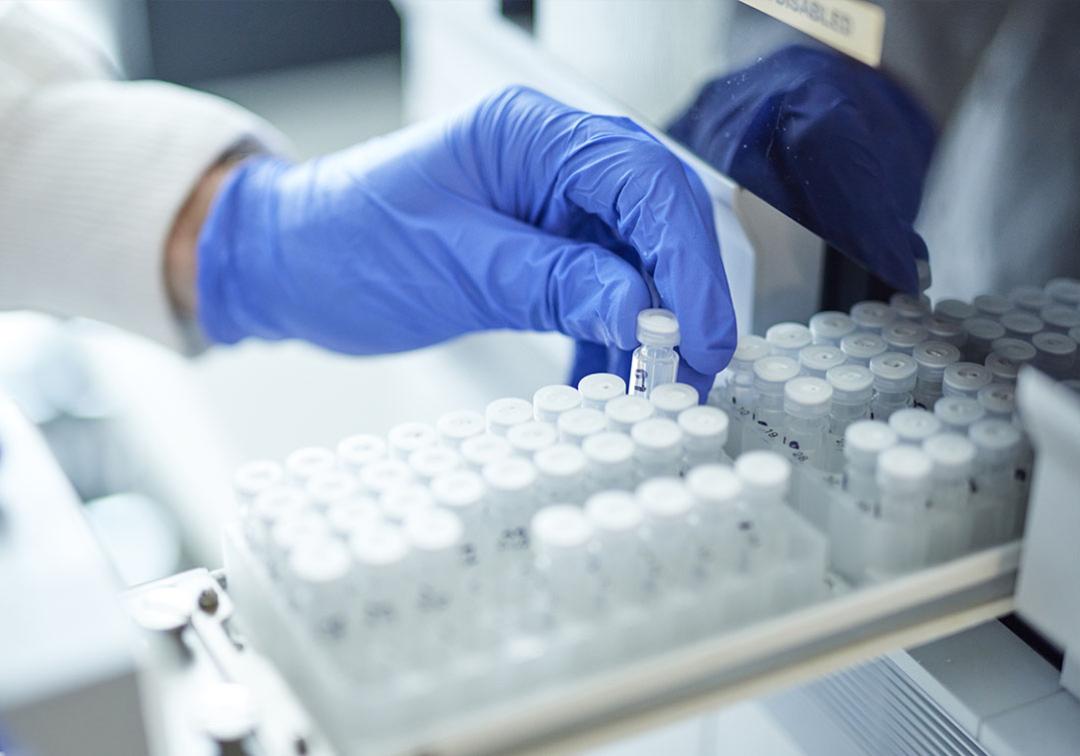
Discover Postgraduate Science
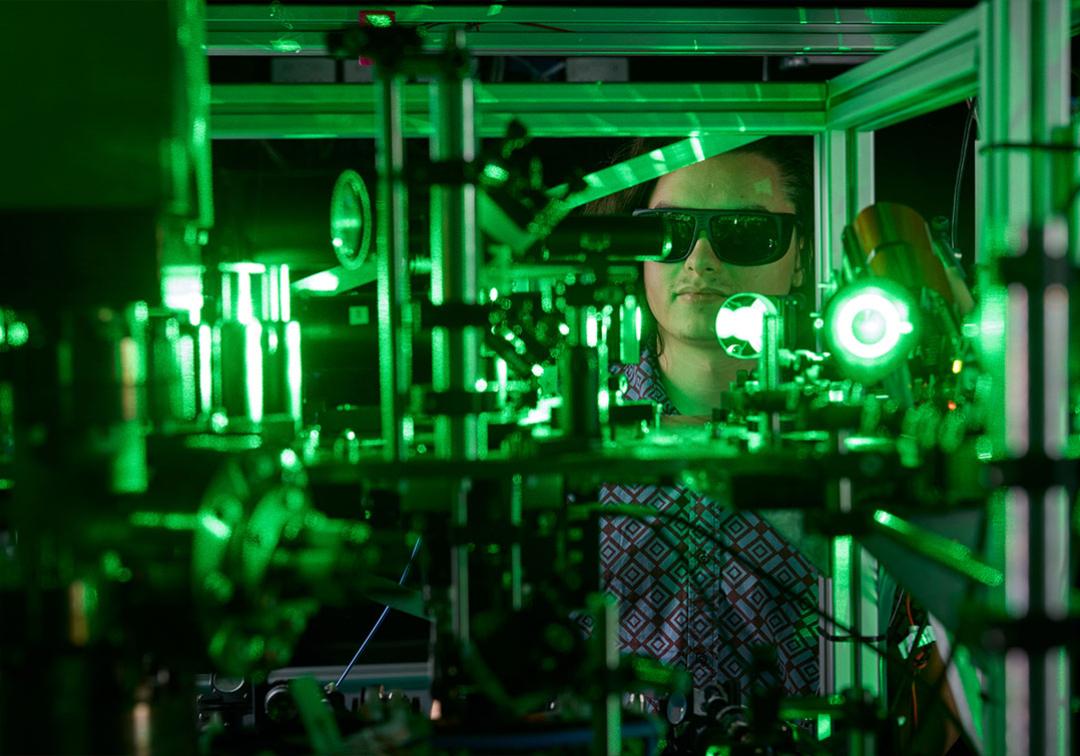
Discover Postgraduate Quantum Technology
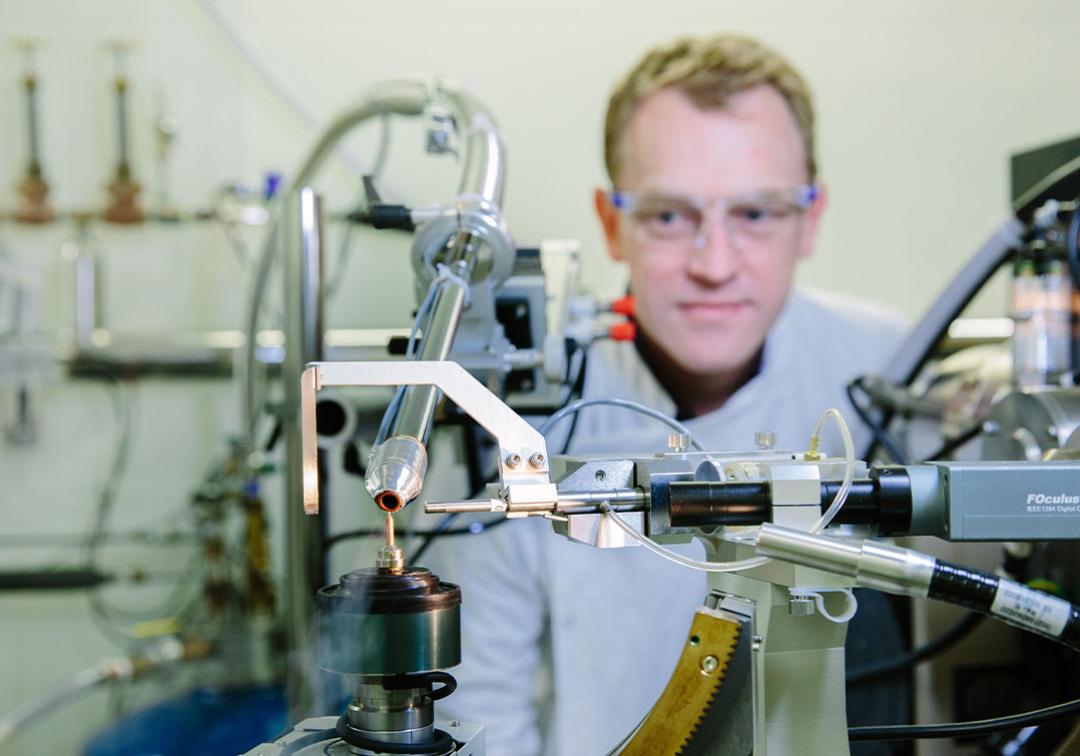
Discover Postgraduate Biotechnology

What’s it like to study health technology and practice as a postgraduate?
5-minute read
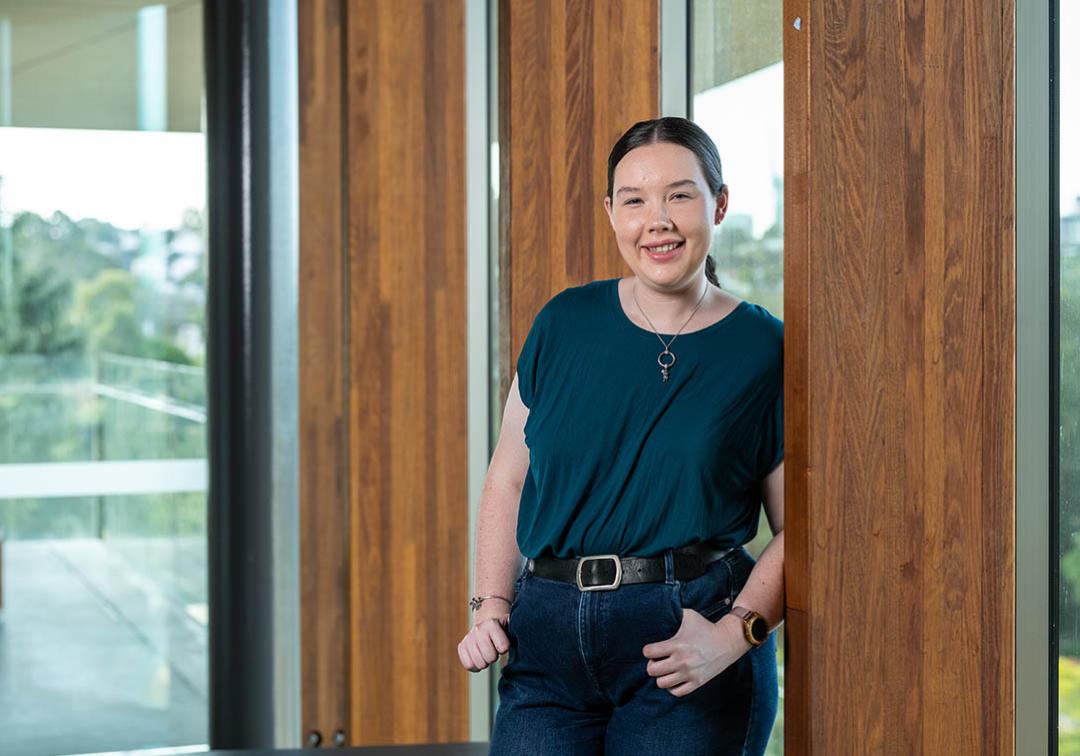
Fighting fire with science: new tech to protect firefighters
6-minute read
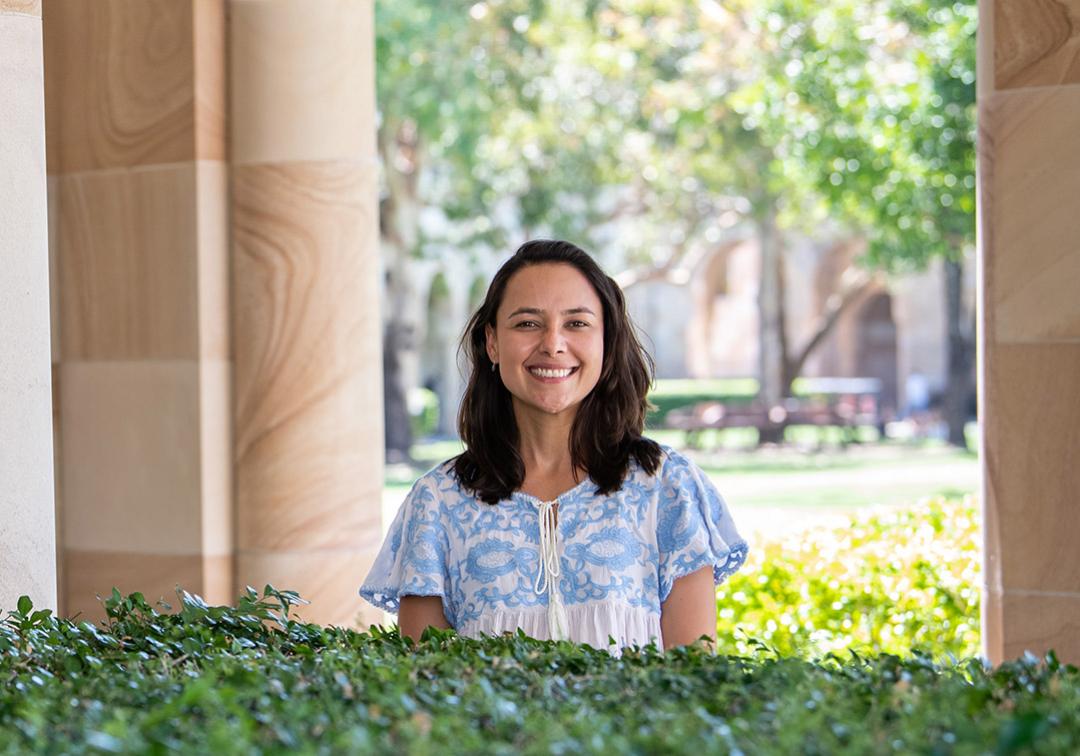
Why do a PhD at UQ?
7-minute read
Entry requirements
It's possible to complete this degree in 2 years, 1.5 years or 1 year depending on your qualifications and experience.
You can apply for any duration as long as you meet the entry requirements. You may also be eligible to apply for credit or exemptions to shorten your degree further. You'll graduate with the same qualification no matter how long you take to complete the degree.
2-year degree (32 units of study)
To be eligible to complete the degree in 2 years full-time (or part-time equivalent) full-time (only available as full-time study) , you'll need:
- a bachelor's degree (or equivalent) in any discipline, or
- a graduate certificate or graduate diploma (or equivalent) in biotechnology, or
- to have successfully completed 3 years of study towards an approved qualification at an overseas partner institution, with a formal pathway to the Master of Biotechnology.
You must have a grade point average (GPA) of 5.0 on a 7-point scale in your previous qualification.
1.5-year degree (24 units of study)
If you have relevant prior learning or experience, you can reduce the number of courses you need to complete and graduate in less time.
To be eligible to complete the degree in 1.5 years full-time (or part-time equivalent) full-time (only available as full-time study) , you'll need:
- a bachelor's degree (or equivalent) in biomedical science, biotechnology, science, bioinformatics, pharmacy or engineering.
1-year degree (16 units of study)
To be eligible to complete the degree in 1 year full-time (or part-time equivalent) full-time (only available as full-time study) , you'll need:
- a bachelor honours degree (or equivalent) in biomedical science, biotechnology, science, bioinformatics, pharmacy or engineering, including a minimum of one semester of full-time research (or equivalent).
GPA equivalent
Select where you studied and your qualification to see the GPA equivalent you need to be considered for this program.
Use the GPA equivalent as a guide. When you apply, we’ll calculate your GPA using the UQ grading scale. Any failing grades will be included. Entry requirements are subject to change.
Equivalent subjects
Related programs.
Depending on your previous qualifications and current goals, you might want to consider one of these related programs:
Master of Biotechnology Research Extensive
- Graduate Diploma in Biotechnology
- Graduate Certificate in Biotechnology
English language requirements
IELTS overall 6.5; reading 6; writing 6; speaking 6; listening 6. For other English Language Proficiency Tests and Scores approved for UQ
TOEFL iBT (including Paper Edition) - Overall 87, listening 19, reading 19, writing 21 and speaking 19.
PTE Academic - Overall Score of 64 and 60 in all sub bands.
BE - A minimum overall grade of 4 plus a minimum grade of C in all macro skills.
CES - Overall 176 and 169 in all sub bands.
OET is not accepted.
There are other ways to meet the English language requirements. For some programs, additional conditions apply.
Learn how to meet the English language requirements
Student visas
International students who are accepted into full-time study in the Master of Biotechnology are eligible to apply for an Australian student visa (subclass 500).
There are a number of requirements you must satisfy before a visa is granted, including the Genuine Student (GS) requirement.
Learn more about student visas
You’ll gain knowledge and skills in animal and molecular biology, genetic engineering, animal reproductive biotechnology, animal vaccines, disease diagnostic equipment, and more.
You’ll develop multidisciplinary research and business skills needed to translate discoveries from the laboratory to real life.
As a graduate you’ll find research and development opportunities with animal breeding consultancies and companies, livestock industries, private or government veterinary animal diagnostic facilities, livestock biotechnology companies, and animal health companies, among others.
This field of study will allow you to be at the forefront of modern medicine. Learn about advanced biopharmaceuticals, cell labelling and tracking, stem cells, immunology, diagnostic devices, gene therapy, artificial organs and other aspects of innovative health solutions.
You will develop multidisciplinary research and business skills needed to translate discoveries from the laboratory to real life.
In this field of study, you’ll gain knowledge and skills in plant molecular biology, genetic engineering, nucleic acid sequencing, disease diagnostics, and much more.
As a graduate you’ll find research and development opportunities with plant breeding and seed companies, government research labs and advisory bodies, agricultural diagnostic facilities, and more.
Learn how to create and re-engineer biological processes in living organisms. Develop cleaner sources of agrochemicals, pharmaceuticals, designer materials and other innovative products across agriculture, health, energy production and environmental management.
Fees and Scholarships
Indicative annual fee.
Approximate yearly cost of tuition (16 units). Your fees will vary according to your selected courses and study load. Fees are reviewed each year and may increase.
Fee information for 2025 is not yet available. Fee information displayed is for 2024.
Learn more about postgraduate fees
Approximate yearly cost of full-time tuition (16 units). Your fees will vary according to your study load. Fees are reviewed each year and may increase.
AUD $53,760
Government assistance, financial aid.
As an international student, you might be eligible for financial aid – either from your home country, or from the Australian Government.
Learn more about financial aid
Domestic places in the Master of Biotechnology are Commonwealth Supported. This means the cost of your education is shared between you and the Australian Government.
Instead of tuition fees, Commonwealth Supported students pay what are called student contribution amounts.
HECS-HELP is an Australian Government loan scheme to assist eligible students with the cost of their student contribution amounts.
Learn more about HECS-HELP
Centrelink support
The Australian Government offers a number of income-support payments to eligible Australian university students.
Learn about Centrelink payments for students
Scholarships
You may be eligible for more than 100 scholarships, including:
Applying online
All international applications should be submitted to UQ. If you prefer, you can use an approved UQ agent in your country .
The program code for the Master of Biotechnology is 5599 .
This program is available in multiple durations. You can apply for any duration as long as you meet the entry requirements.
When you apply, select your preferred duration. If you don't meet the requirements for your first preference, we'll automatically consider you for entry into a longer duration.
Find out more about applying for postgraduate coursework study
All domestic applications should be submitted to UQ.
The program code for the Master of Biotechnology is 5599 .
When you apply, select your preferred duration. You can also ask us to consider you for a longer duration if you don't meet the entry requirements for your first preference.
Important dates
The closing date for this program is:
- To commence study in semester 2 - May 31 of the year of commencement.
- To commence study in semester 1 - November 30 of the previous year.
To learn more about UQ dates, including semester start dates, view the Academic Calendar .
- To commence study in Semester 1 - January 31 of the year of commencement.
- To commence study in Semester 2 - June 30 of the year of commencement.
Aboriginal and Torres Strait Islander applicants
For support with applying – or if you have any questions about university life – get in touch with our Aboriginal and Torres Strait Islander Studies Unit.
Contact the ATSIS Unit
Explore other programs
Master of bioinformatics research extensive, master of molecular biology, master of molecular biology research extensive, express yourself. and your interest..
They say choosing a degree is hard, which is why we've made it easy. Register your interest and we'll send you everything you need to know about applying to UQ.
Sign up for updates
We will use your information to keep you informed about UQ programs, news, events and scholarships. By submitting this form, you consent to the terms of UQ's Marketing consent and privacy notice .
College of Engineering
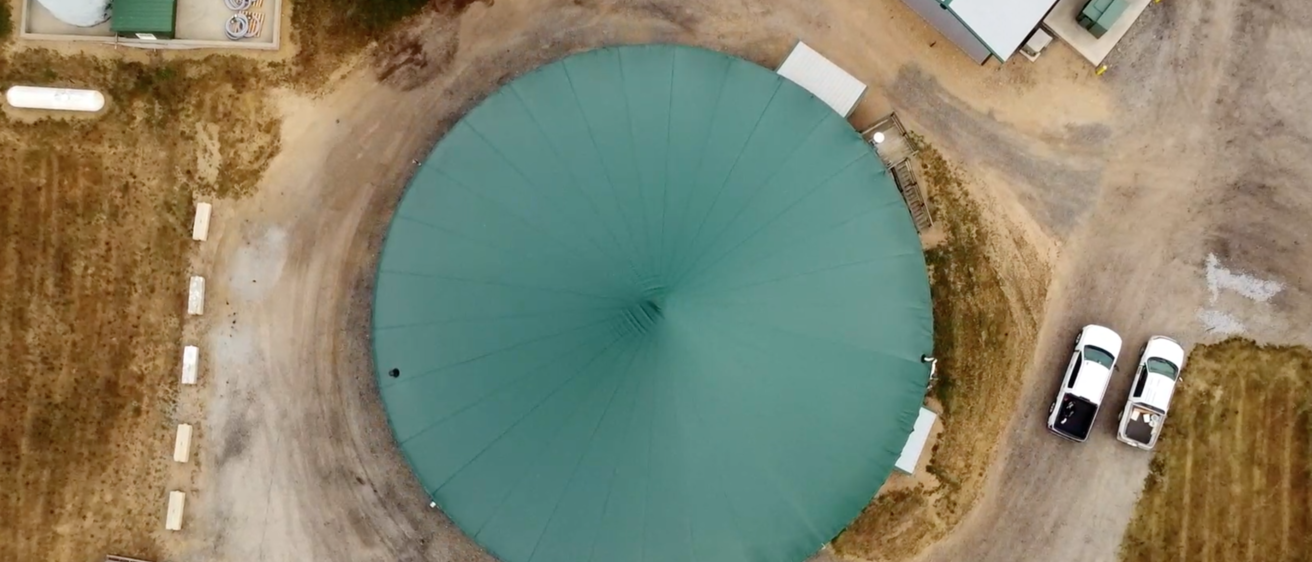
Biotech firm’s philanthropy sponsors Iowa engineering research
An environmental biotechnology firm is innovating how philanthropy can support University of Iowa research in hopes of creating a business case for diverting waste from the landfill and converting it into energy.

Idaho-based Valkyrie Analytics has pledged $1.5 million to the Bioenergy Innovation Fund to support the research of Craig Just, the Donald E. Bently Professor in Engineering and associate professor of civil and environmental engineering.
The goal is a scalable approach to turning animal biproducts and food waste into renewable energy, a breakthrough that could reduce carbon footprints worldwide.
"This collaborative agreement will further our efforts for a better, cleaner future where we can measure by the ton the impact we have on the carbon mitigation efforts, moving from a theoretical calculation model to more real time monitoring supported by real time analytics,” said Will Charlton, president of Digester Doc, the primary shareholder of Valkyrie Analytics.
“I see this gift as an opportunity to make a difference in the world.”

Just leads Iowa’s Wastewater and Waste to Energy Research program, which will benefit from the funds. He calls waste just a misplaced resource.
“Iowa is the epicenter on the planet of underutilized organic waste,” Just said. “We have the most of it anywhere in the world, and we should do more with it.”
More than a billion tons of organic waste is generated globally each year. Much of it ends up in landfills where it emits methane, a greenhouse gas responsible for nearly one-third of the world’s rising temperatures.
One piece of the puzzle is anaerobic digestion, a process in which organic waste is used as feedstock and broken down by microorganisms in a digester facility. The process results in biogas, which can be used for heat, electricity, fuel, or natural gas, as well as biosolids, which can also be reused.
The business model needs to operate at a large scale to work, and currently there are limited digesters in operation and the waste-to-energy conversion process is far from fine-tuned, Just said.
Valkyrie Analytics’ financial gift will allow t he research team , which includes Just, undergraduates, PhD candidates, and research engineers, the flexibility to test machine learning on data collected by Valkyrie Analytics’ sensors, which monitor the anaerobic digestion process. The goal is for the data analysis process to yield usable real-time information so digester operators can make adjustments that will optimize production of biogas.
A digester connected with a municipal water resource recovery facility in Muscatine, Iowa, will be among the first focal points of the project.
“With their help we will be able to offer a fully capable service to anaerobic digesters worldwide that will give a renewable technology and opportunity to advance in ways never before imagined, moving from a reactive operational status to a more complete proactive management style,” Charlton said.

IMAGES
VIDEO
COMMENTS
Commonwealth PhD Scholarships. Living allowance at the rate of £1,133 per month. or. £1,390 per month for those at universities in the London metropolitan area. - Two ways air ticket. - Tuition fees. - Warm clothing allowance. - study-related travel grants. 36 months.
2. United Kingdom - A Tradition of Excellence. The UK is also one of the best countries to study biotechnology abroad as it offers a rich tradition of scientific innovation. Universities such as Oxford and Cambridge offer top-tier biotechnology programs.
4,000 EUR / year. 4 years. Molecular Genetics and Biotechnology Graduate Study Programme from University of Nova Gorica enables an education of young scientists with the ability to apply the knowledge acquired in different fields. Ph.D. / Full-time / On Campus. University of Nova Gorica Nova Gorica, Slovenia.
For UK universities, there are generally two ways of applying. You can either apply directly through the university's website or you can make an application through the UCAS Postgraduate system. In Spain, Italy and Germany, before applying to a PhD you will first need to pass a pre-application process.
The entry profile of a PhD candidate for a Biotechnology degree is a prospective student with an undergraduate degree, typically a 2:1 Master's degree, in a field related to Biotechnology, Microbiology, Biochemistry, Food Science and Technology, Veterinary Medicine, Chemistry and Engineering. A background in biology is particularly favourable.
Find out what it's like to study a PhD in Australia, including advice on visas, applications & scholarships. A culture of innovation and creativity makes Sweden a popular choice for international PhD students. Our guide covers universities, doctoral programmes, fees, funding and visas. Holland and the Netherlands are a welcoming destination for ...
6 Biotechnology PhDs in Germany. Industrial Biotechnology. Heinrich Heine University Düsseldorf. Empatho-Kinaesthetic Sensory Systems. Friedrich-Alexander-Universität Erlangen-Nürnberg (FAU) ATLAS - Translational Medicine. Johannes Gutenberg University Mainz. Matter to Life (PhD Phase) Max Planck School Matter to Life.
4,000 EUR / year. 4 years. Molecular Genetics and Biotechnology Graduate Study Programme from University of Nova Gorica enables an education of young scientists with the ability to apply the knowledge acquired in different fields. Ph.D. / Full-time / On Campus. University of Nova Gorica Nova Gorica, Slovenia.
Top Universities for PhD in Biotechnology Abroad. Being a doctorate course, PhD in biotechnology is offered across numerous leading universities across the world. As Biotechnology is interdisciplinary and technical, the quality of education offered at a prospective university impacts the student's overall learning experience, thus you must ...
The universities with the best reputations for science and technology are often where you'll find the top biotechnology degree programs. In Europe, the UK is perhaps the number one destination as it offers a number of top-ranked programs. France is also popular as it has a strong biotech industry, especially in the medical technology sector.
Scholarships for PhD in Biotechnology in Germany Even though the majority of German universities do not charge tuition for undergraduate or PhD programmes, a student still needs to cover other costs. In addition to living expenses, this also includes health insurance, semester admissions, and donations to student organisations.
Why do this PhD? Biotechnology is characterised as a highly multidisciplinary field, in which basic knowledge of micro-organisms, cells and enzymes used in multiple biotransformations and applications is combined with knowledge of the engineering principals behind designing, constructing, and operating the bioprocesses that enable the industrial production of key products in the necessary volumes.
Scope. The 2021 federal budget proposed a $2.2 billion investment into the biotech space, including $1 billion over seven years that will be utilised towards bio-manufacturing firms through the Strategic Innovation Fund. Canada has several organizations that hire professionals in biotechnology with a well-paying package that is better than most countries.
Biotechnology is a core strength of the Faculty of Science and Engineering at Manchester. Biotechnology research within the Department includes the genetic engineering of plants, bioremediation of terrestrial and aquatic environments, biofuels and bioproducts from plants, algae and microorganisms, environmental biotechnology, bioinformatics.
Fees. For entry in the academic year beginning September 2024, the tuition fees are as follows: PhD (full-time) UK students (per annum): Standard £4,786, Low £11,000, Medium £17,500, High £23,000 International, including EU, students (per annum): Standard £27,000, Low £28,500, Medium £34,500, High £40,500. Further information for EU ...
Study PhD Biotechnology Abroad> Students can pursue a tax law diploma while studying abroad if they have the funds to do so. The length of the international PhD Biotechnology programme varies by course, institution, and nation. There are many benefits to studying abroad, including exposure to the subject and diverse cultures, as well as having ...
Eligibility. The Graduate Route. UK. Students Completing their undergraduate or master's degree to remain in work in the UK for up to 2 years. J1 Visa and H1B Visa. US. Completed a Bachelor's or higher degree in the related specialty occupation from a US educational Institution. Post Study Work Stream Visa. Australia.
We always recommend that you speak to an IDP counsellor to get the latest and most accurate advice. 41 Doctorate Biotechnology courses 📖 found on IDP India. Course price ranging from INR 3,095,851 - INR 12,209,979 with a max.Hurry the courses start from 01 May 2024.
Which course is best in abroad, Master's or PhD (biotechnology)? Both a Master's and a PhD degree are good to take up abroad as well as in good research institutes within your country of residence. Some famous research institutes in India are IISc, NCBS, TIFR, IISERs, IITs, and so on (in case you live in India). I think you will have to ...
With an MSc in Biotechnology, you can pursue careers in fields like clinical research, quality control, data management and healthcare. You can also apply for a PhD if interested. The MSc degree is an acceptable qualification for applying for a PhD. With a PhD, your eligibility increases for handling directorial roles in sectors like industry ...
While there are a number of Indian universities that offer a PhD program, pursuing PhD abroad has its fair share of advantages which entice international students. Completing a successful overseas PhD requires much more than just time and money. It takes an immense amount of patience and perseverance. Get Free Assistance From Our Experts.
A PhD in biotech is a similar doctoral course where students study streams like biological chemistry, molecular biology, bioinformatics, and microbiology in depth. Furthermore, different analytical and biological techniques like cross-breeding, gene therapy, genetics, and embryology are studied and developed.
After Phd in Biotechnology, the candidates can do research work, or they can be recruited as a professor in many prestigious institutes like IITs, NITs & others. ... Will I have to qualify in any English Proficiency exam to study PhD Biotechnology abroad? Ans. Yes, English Proficiency tests like IELTS, TOEFL, etc are compulsory for getting ...
a graduate certificate or graduate diploma (or equivalent) in biotechnology, or; to have successfully completed 3 years of study towards an approved qualification at an overseas partner institution, with a formal pathway to the Master of Biotechnology. You must have a grade point average (GPA) of 5.0 on a 7-point scale in your previous ...
Valkyrie Analytics' financial gift will allow t he research team, which includes Just, undergraduates, PhD candidates, and research engineers, the flexibility to test machine learning on data collected by Valkyrie Analytics' sensors, which monitor the anerobic digestion process. The goal is for the data analysis process to yield usable real ...